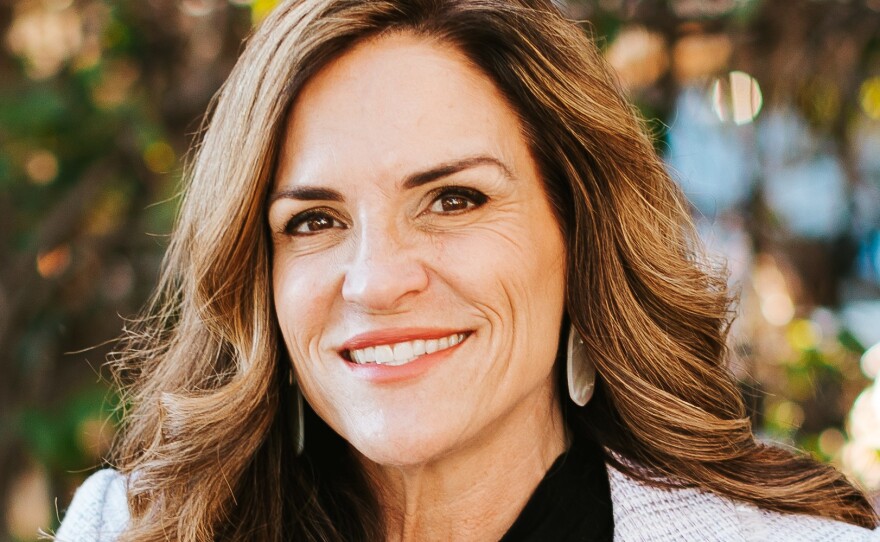Why is there a special election for District 4?
Voters in San Diego County's Fourth Supervisorial District will be electing a new supervisor on Nov. 7. The race is a runoff between the top two candidates from the Aug. 15 primary: Monica Montgomery Steppe and Amy Reichert.
The special election was triggered by the resignation of Nathan Fletcher, who was accused by a former Metropolitan Transit System employee of sexual harassment and sexual assault. Whoever wins the runoff will serve the remainder of Fletcher's term, which ends in January 2027.
District 4 includes parts of the city of San Diego such as Clairemont, Mission Valley, North Park and Encanto, as well as La Mesa, Lemon Grove, Spring Valley and Rancho San Diego.
Every registered voter in the district will receive a ballot in the mail the week of Oct. 8. Voters can send their ballot in the mail — as long as it is signed and dated — or can vote in person at certain locations listed on the Registrar of Voters website.
What does a county supervisor do?
County supervisors are the elected officials that oversee the county government, which is responsible for administering state- and federally-funded social welfare programs such as CalFresh (commonly known as food stamps), Medi-Cal and the foster care system. The county has limited control over how these programs are run.
The supervisors have much more direct control over the county's unincorporated areas — mostly rural communities that are outside of San Diego County's 18 cities and therefore don't elect their own mayors or city councils. In these areas, the county government does everything a city government would otherwise do: trash collection, infrastructure planning, zoning and permitting, emergency services and more.
One role of county supervisors that has grown in importance and visibility in recent years is public health. The county monitors and responds to outbreaks of infections diseases such as hepatitis, mpox, HIV and other STDs, influenza and COVID-19. During the early stages of the COVID-19 pandemic, decisions around business restrictions, masks and vaccine mandates put the county supervisors in the spotlight.
Some branches of the county government have their own elected officials, such as the San Diego County District Attorney's Office and the San Diego County Sheriff's Department. The DA and sheriff have autonomy over their own departments, but county supervisors approve their budgets and can pass laws that impact how they operate.
What issues is the board of supervisors facing?
Housing
Because county supervisors control zoning in the unincorporated areas, they play a big role in determining how much housing gets built there. The unincorporated areas have abundant land that could be zoned for higher density. But these areas tend to carry a higher risk of wildfires. They are also much farther from employment centers, meaning residents there would have to drive longer distances, which increases greenhouse gas emissions.
Last year, the San Diego County Board of Supervisors adopted a system of fees charged to developers who build in the unincorporated areas. The fees are scaled to the amount of driving a development would induce. This makes building in the county's most car-dependent communities less attractive. Supporters of this program say it encourages developers to build in more walkable, urban communities. Opponents say it exacerbates the county's housing shortage, which is driving up rents and home prices.
Homelessness
The county government — and the county supervisors — have a key role in managing the homelessness crisis, in particular when a person's lack of housing is tied to substance use and/or mental illness. The county operates a psychiatric hospital in the Midway District as well as three outpatient behavioral health centers. It also runs several "crisis stabilization units" and "mobile crisis response teams" that can respond to emergencies in lieu of law enforcement.
However, a person's lack of housing may have nothing to do with addiction or mental health challenges but is simply due to San Diego County's high cost of housing. The Board of Supervisors administers a limited amount of funding to build affordable housing projects. It can provide land for private developers to build affordable housing on, as it did at the site of the now demolished Family Court Building.
Transportation
County supervisors have direct control over most of the streets, roads and highways in the unincorporated areas. But their role in transportation policymaking has even more reach via their representatives to outside agencies such as the San Diego Association of Governments (SANDAG). SANDAG's board of directors includes two county supervisors, and their votes can carry more weight because they represent more constituents than board members from small cities. SANDAG makes key decisions on building and expanding freeways and public transit. The board is currently chaired by Supervisor Nora Vargas.
The Board of Supervisors also has representatives on the boards of the county's two transit operators: The Metropolitan Transit System and the North County Transit District. While SANDAG plans and funds transit infrastructure, these agencies oversee day-to-day transit operations. Before his resignation, former Supervisor Nathan Fletcher chaired the MTS board of directors.
Who are the candidates?

Monica Montgomery Steppe
- Current member of the San Diego City Council
- Registered Democrat
- Former criminal justice advocate for the ACLU of San Diego & Imperial Counties
- Won 42.7% of the vote in the Aug. 15 primary
If Montgomery Steppe wins...
A victory by Monica Montgomery Steppe would return the Board of Supervisors to a 3-2 Democratic majority. This would allow the county to pursue more progressive policies. Democrats on the board of supervisors have generally supported hiring more staff to increase the county's service levels.
Montgomery Steppe has been a longtime advocate for progressive criminal justice reform and increased transparency and accountability for law enforcement. While she would not run the District Attorney's Office or the Sheriff's Department, she could attempt to push those offices in a more progressive direction via lawmaking or the budget process.
Montgomery Steppe can be considered the favorite in the runoff election for two main reasons. First, she beat Reichert in the primary by nearly 14 percentage points. Second, Democrats outnumber Republicans in District 4 more than 2 to 1. She also enjoys support from deep-pocketed unions that can spend money on her behalf.

Amy Reichert
- Private investigator
- Registered Republican
- Leader of ReOpen San Diego, which fought against COVID-19 restrictions and vaccine mandates
- Won 28.8% of the vote in the Aug. 15 primary
If Reichert wins...
A victory for Amy Reichert would end the nearly three years of Democratic control of the Board of Supervisors and return it to a Republican majority. Republicans controlled the county government for decades and have generally been reluctant to increase spending, instead prioritizing building up the county's fiscal reserves.
Reichert would be the polar opposite of Montgomery Steppe on issues of criminal justice and law enforcement. Her website states she "believes criminals should serve their time and not be eligible for early release when they still pose a threat to public safety." While Montgomery Steppe has supported diverting funding from law enforcement to social welfare programs as a crime prevention strategy, Reichert supports increased law enforcement funding to hire more sheriff's deputies.
Because Reichert's engagement in politics came from her opposition to COVID-19 restrictions, she would likely resist a more aggressive response if the virus ever resurges or if another pandemic emerges. Reichert can be considered the underdog in the race because she came in a distant second in the primary and because Republican voters in District 4 are far outnumbered by Democratic voters. She also has less support from outside groups that can spend money supporting her candidacy.











